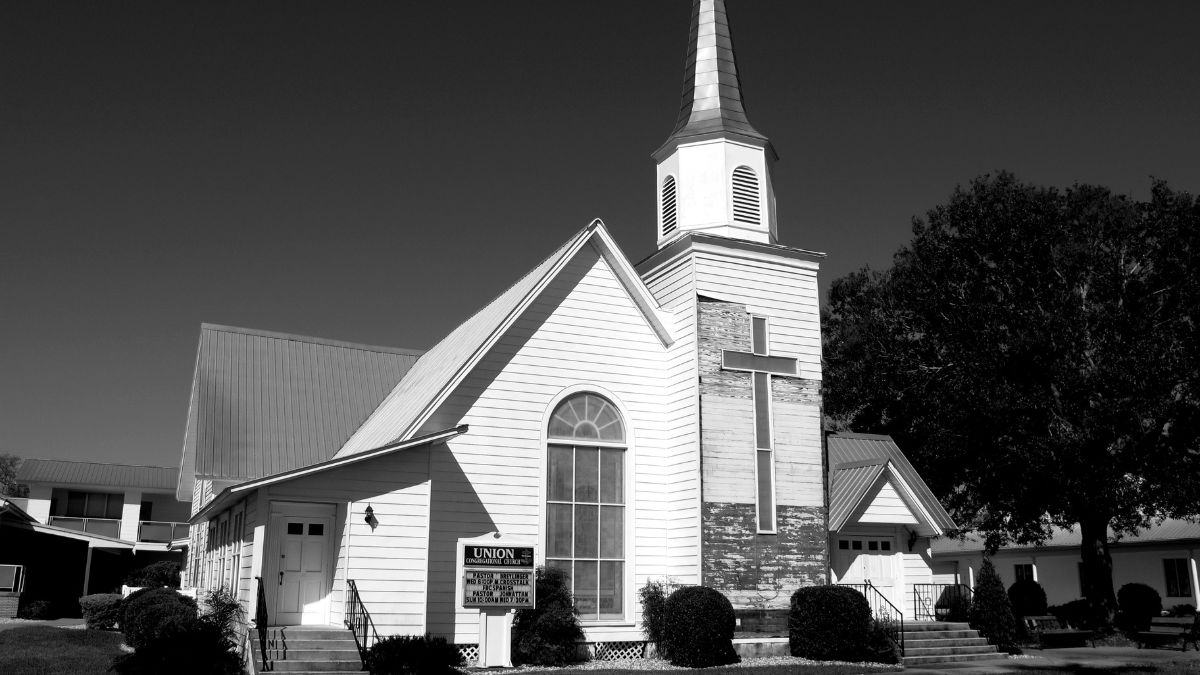

Is It the End of the Line for Mainlines?
Choosing culture over Christ, Mainline Protestantism is in its last days.
06/13/24
John Stonestreet and Shane Morris

The United Methodist Church was once one of the largest denominations in the United States, with over 11 million members and a presence in nearly every county. Today, after decades of numerical decline and doctrinal compromise, it is a shadow of its former self. Last month at a General Conference full of bizarre elements, the Methodists made what may be one of their final compromises, welcoming “self-avowed practicing homosexuals” to become ministers.
For years, the remaining conservatives, especially the large number of delegates from Africa, have held back the full liberal takeover of the denomination. However, in just the last five years, more than 7,600 congregations have left the United Methodists, mostly over the denomination’s failure to enforce its stated rules on marriage and clergy.
The Associated Press quoted one lesbian bishop who celebrated the vote: “It seemed like such a simple vote, but it carried so much weight and power, as 50 years of restricting the Holy Spirit’s call on people’s lives has been lifted.” In fact, what she labels a “call” contradicts everything the Holy Spirit has revealed in Scripture, not to mention 2,000 years of Christian teaching and the teaching of John Wesley, founder of Methodism.
A few days ago, over a million West African Methodists voted to leave the denomination. Jerry Kulah, a delegate from Liberia, spoke for many Methodists on the continent when he called the UMC’s decision to redefine sexuality “a serious drift away from the truth.” He added: “The church is now buying into culture. The Bible has not changed, but the [Methodist] church has changed.”
The liberal Methodists of North America have now virtually guaranteed their denomination’s extinction. Conservative Methodists around the world were and still are the lifeblood of the tradition. In their absence, there remains only a physically and spiritually sterile collection of mostly old, white, dying congregations. In this, they represent the larger trend in Mainline Protestant churches.
Author and religion researcher Ryan Burge recently pointed out that, for the first time, Mainline Protestants have now fallen below 10% of the U.S. population. Considering that these traditions once dominated national life, Sunday mornings, politics, and most downtown areas, this is historic. It’s the end of an era in which Christianity was once at the center of national life, not the periphery.
Though evangelical denominations have, in some ways, taken up the mantle of these older traditions, it’s worth reflecting on just what went wrong. The Mainlines aren’t dying because they lost the culture. They’re dying because they won the culture, or at least adopted a form of godless religiosity that made their message virtually indistinguishable from secular moralists. The approval of homosexual relationships and sexual identities is just a final fruit of their theology.
Over a century ago, a Presbyterian theologian named J. Gresham Machen warned, in a remarkable book called Christianity and Liberalism, that liberalism is a fundamentally different religion, based ultimately on a different Christ:
The truth is that the life-purpose of Jesus discovered by modern liberalism is not the life purpose of the real Jesus, but merely represents those elements in the teaching of Jesus—isolated and misinterpreted—which happen to agree with the modern program. It is not Jesus, then, who is the real authority, but the modern principle by which the selection within Jesus’ recorded teaching has been made.
The sad results of the process Machen lamented are all around us. Mainline Protestantism is in its last days, having wasted a legacy few other Christian movements could boast. Denominations that decided to preach a culturally palatable gospel soon found congregants going directly to the culture for truth and meaning. After all, why go to church on Sunday morning only to hear the same message on NPR the rest of the week?
Yet for churches and denominations that retain what Jesus called their “saltiness,” refusing to turn sins for which He died into identities, the future is still bright. It’s no surprise, for instance, that conservative Methodism is growing chiefly in traditional Africa, where congregations have more than doubled since the 2000s.
Whatever denominational name they embrace, such churches are faithfully confessing the name and teaching of the true and only Christ. Because of this, they’ll carry forward a godly legacy long after the United Methodist Church—and perhaps all of Mainline Protestantism—is nothing but a memory.
This Breakpoint was co-authored by Shane Morris. For more resources to live like a Christian in this cultural moment, go to breakpoint.org.
Have a Follow-up Question?
Related Content

© Copyright 2020, All Rights Reserved.














